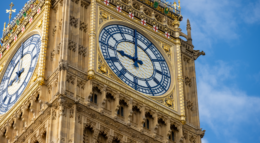
It's time to fix the banks
John Redwood believes Trump's election presents an opportunity to turn our backs on excessive austerity banking, and to find international agreement on the future of banking regulation.
Many advanced economies, especially on the continent, have struggled since the crash of 2008-9 thanks to the failure to mend the commercial banks. The main authorities of the advanced world lurched from being far too lax with how much banks lent compared to their capital, cash and reserves, to being too tough. As a result we have had slow growth or no growth, depending on the relative weakness of the individual national commercial banking systems. The US and UK fixed their banks more quickly than the Euro area, but still demand levels of cash and capital that makes normal levels of credit expansion difficult in this cycle. On the continent in the recession ridden economies of Italy, Greece, Portugal and until recently Spain, past excess has led to a long period of credit starvation.
All this cramps growth and opportunity. No-one is suggesting the banks should lend more to individuals and organisations that can't repay the last lot they borrowed. This credit squeeze is also preventing new loans to individuals and companies that are not over borrowed, and stands in the way of the normal use of credit to grow demand for larger ticket items, and to expand business capacity to respond to rising demand.
I have long argued that I would rather the governments and Central banks since 2008 had concentrated on fixing the banks, than on Quantitative Easing as a palliative for not fixing the banks. I can see that QE could be better than doing nothing. However, one of its adverse side effects was to lower long interest rates, making it more difficult for banks to make a profit. This delayed their balance sheet recovery, as they need more retained profits to provide the buffers against future losses they need before lending more.
The arrival of Mr Trump may change all this. It offers an opportunity to turn our backs on excessive austerity banking, and to find some possible agreement between the Europeans and the USA over what the next phase of world banking regulation should look like. Basel IV, the possible further tightening of demands for bank cash and capital, is in dispute now. At the same time Mr Trump's team may soon develop proposals to amend Dodd Frank and the US bank regulatory code that came in following the crash. Mr Trump will want to expand the US growth rate in part by making more loans available for good projects in the US private sector. That will require a new bank fix.
I will write more about this in future posts. The way to end austerity and slow growth is to fix the banks sensibly and credibly. The authorities made two big mistakes between 2005 and today. All now agree they were too lax prior to 2007. It is now possible more will come to see they have been too tough and too unhelpful to rebuilding well financed expansion minded banks since the crash. People may not like banks, but trying to punish them as institutions is a kind of self-harm, as it depresses economic performance if the banks can't lend.

John Redwood is a former Conservative MP for Wokingham and a former Secretary of State for Wales. For more on UK tech and innovation policy, read Sean Kohli on why Britain must back its founders to win the AI race.









